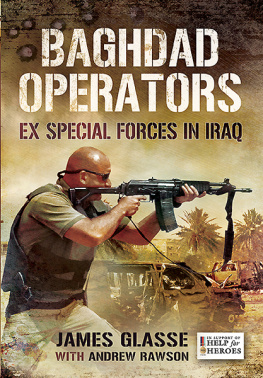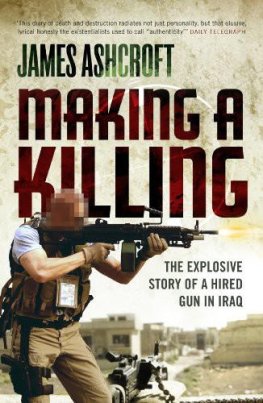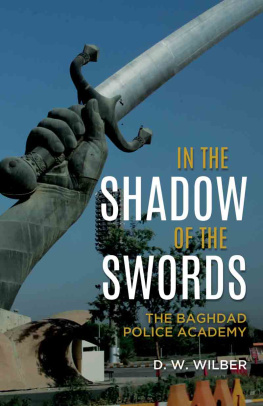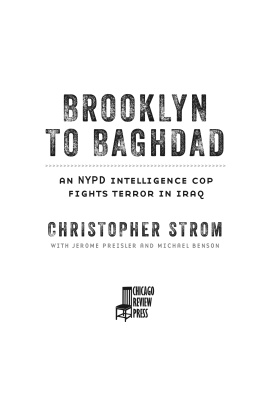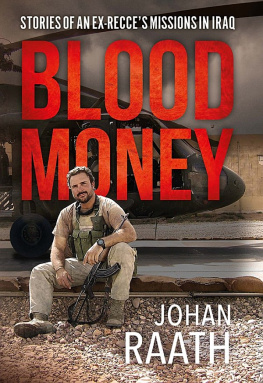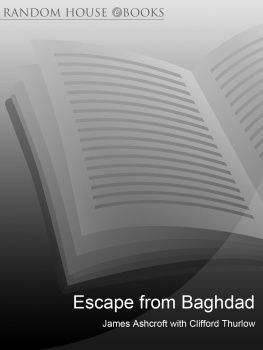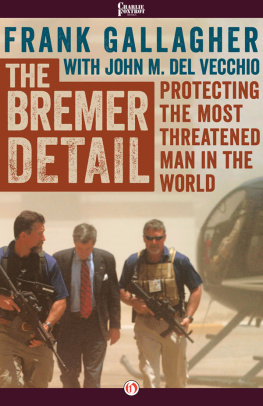Books by this author
LOOS HILL 70, 1915
(Pen and Sword, Battleground, 2003)
LOOS HOHENZOLLERN, 1915
(Pen and Sword, Battleground, 2003)
WALCHEREN, 1944
(Pen and Sword, Battleground, 2004)
REMAGEN, 1945
(Pen and Sword, Battleground, 2004)
CHERBOURG, 1944
(Pen and Sword, Battleground, 2005)
IMAGES OF WAR, BATTLE OF THE BULGE
(Pen and Sword, 2004)
IMAGES OF WAR,VICTORY IN EUROPE
(Pen and Sword, 2005)
IMAGES OF WAR, VICTORY IN THE PACIFIC
(Pen and Sword, 2005)
OPERATION FLASHPOINT, RHINE CROSSING, 1945
(Pen and Sword, Battleground, 2005)
IN PURSUIT OF HITLER
(Pen and Sword, Battleground, 2005)
BRITISH ARMY HANDBOOK 1914-1918
(Sutton, 2006)
VIETNAM WAR HANDBOOK
(History Press, 2008)
PENINSULAR WAR 1808-1814
(Pen and Sword, Battleground June 2009)
THIRD REICH, NAZIS RISE TO POWER REFERENCE BOOK
(History Press, 2010)
BATTLE OF THE BULGE, BATTLE STORY
(History Press, 2011)
IWO JIMA, BATTLE STORY
(History Press, 2011)
EYES ONLY, THE TOP SECRET MARSHALL EISENHOWER CABLES
(History Press, 2012)
SHOWCASING THE NAZI REGIME, THE NUREMBERG RALLIES
(History Press 2012)
TET, BATTLE STORY
(History Press 2013)
ORGANIZING VICTORY, THE WAR CONFERENCES 1941-1945
(History Press 2013)
First published in Great Britain in 2013 by
Pen & Sword Military
An imprint of
Pen & Sword Books Ltd
47 Church Street
Barnsley
South Yorkshire
S70 2AS
Copyright Andrew Rawson 2013
ISBN: 9781781593653
PDF ISBN: 9781473829145
EPUB ISBN: 9781473828285
PRC ISBN: 9781473828711
The right of Andrew Rawson to be identified as Author of this work has been asserted by
him in accordance with the Copyright, Designs and Patents Act 1988.
A CIP catalogue record for this book is
available from the British Library
All rights reserved. No part of this book may be reproduced or transmitted in any form or
by any means, electronic or mechanical including photocopying, recording or by any
information storage and retrieval system, without permission from the
Publisher in writing.
Typeset in 10 pt Palatino by Faction Press
Printed and bound in the UK
By CPI
Pen & Sword Books Ltd incorporates the Imprints of Pen & Sword Aviation,
Pen & Sword Family History, Pen & Sword Maritime, Pen & Sword Military, Wharncliffe
Local History, Wharncliffe True Crime, Wharncliffe Transport
Pen & Sword Select, Pen & Sword Military Classics, Leo Cooper, The Praetorian Press
Remember When, Seaforth Publishing and Frontline Publishing
Claymore Press
For a complete list of Pen & Sword titles please contact
PEN & SWORD BOOKS LIMITED
47 Church Street, Barnsley, South Yorkshire, S70 2AS, England
E-mail:
Website: www.pen-and-sword.co.uk
Contents
Preface
The world changed on 9/11 2001, when four planes were hi-jacked in the skies over the United States and flown into the World Trade Centre and the Pentagon. Then came the war in Afghanistan, a war which is still going on in 2013. In March 2003, ten years before this book was published, the invasion of Iraq, Operation Iraqi Freedom began. It did not take long to topple Saddam Husseins regime and President George W. Bush was soon announcing Mission Accomplished. But the mission was far from accomplished
While battles were still being fought around Baghdad a team of five British ex-Special Forces began work escorting a client around Iraqs electricity grid, as part of the reconstruction plan for the country. What was a one-off job turned into a business as the construction work snowballed and the need to protect the contractors increased. Before long the five man team had over 200 employees, many of them ex-Special Forces from around the world, working for them.
Follow the highs and lows of working in the security industry as the security teams came to terms with the chaos on Baghdads streets, where dickers, snipers, carbombs, and IEDs were constant hazards. Discover how the men used their military skills to survive and how they constantly changed their operating procedures to try and keep one step ahead of the bad guys. And find out what happened when it went badly wrong.
The company expanded from the Basra oilfields into the Baghdad area, where life in the Green Zone evolved in complete contrast to that of the civilians living in the Red Zone. As work mushroomed, so did the dangers. But without their security teams, contractors could not function and the Coalition Provisional Authority could not fulfil its promises. Eventually the work expanded into the desolate country of Kurdistan, a fiercely independent area where everyone was viewed with suspicion.
The battles fought across Iraq were well documented by news teams and the casualties are remembered with honour. However, few know the details about the private wars fought to rebuild and protect Iraqs infrastructure while the fallen and the injured are only remembered by their families and their mates.
While some called them mercenaries, they called themselves Operators.
Introduction
Army Days
I WENT TO SCHOOL in Yorkshire in the 1970s but I turned away from studies when it was time to leave. I was mixing with the wrong crowd and believed it was unfashionable to study; all I wanted to do was join the army. So, it was off to join the Paras and the harsh environment that brought, but I thrived on the discipline and knew I could become somebody in the army. It was during that time that I first came across the Special Forces when one of their guys walked through our lines, said alright lads and headed towards the enemy looking to fight his own war. We were amazed because we needed so much backup and all our mates to fight our war. The image of him walking alone into enemy territory never left me.
Having done all my courses and with no conflicts on the horizon, I applied for Special Forces and after a long wait was accepted onto Selection. Weeks of gruelling exercises followed in the Welsh hills, the Borneo jungle and the Scottish mountains. The selection process whittled the numbers down from over 250 to a handful but I made it and a personal greeting from the colonel welcomed us into Regiment. But that was only the start.
Over the next ten years I had many adventures all around the world but little did I know that the skills we were acquiring were also preparing me for a career after I left the services. Time spent on the streets of Northern Ireland trained us how to move covertly in potentially hostile urban environments. It also taught us the many ways of intelligence gathering when facing paramilitaries and the importance of understanding information. Then there was two years looking after a communications expert across a variety of terrains, ranging from the arctic to the arid and from mountains to desert. Little did I know the skills acquired working with a close protection team would serve me well years later.
Because in the 1990s the global security industry was tiny compared to the multi-billion dollar industry it is today. No one back then knew how the world was about to change in the aftermath of 9/11 and the wars in Afghanistan and Iraq. So when I retired in the spring of 2001, I was left wondering what I would do next: global terrorism had not been heard of. It was soon to change, but first I had to carry out one last operation.
Chapter One
One Last Operation
WHEN YOU LEAVE THE REGIMENT it does not leave you. The military exploits of the Special Forces are often in the public domain, either through the media, books or documentaries. People come to think of you as some sort of super hero, either jumping out of planes or jumping into embassies. But a lot of operations are non-military in nature and while it is in the national interest to carry them out, it is not in the national interest for them to be scrutinized by the media. After all we do not want the bad guys knowing what we get up to, do we?
Next page
